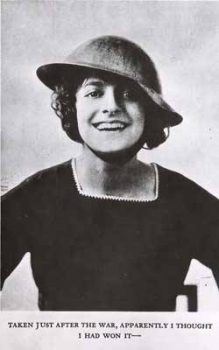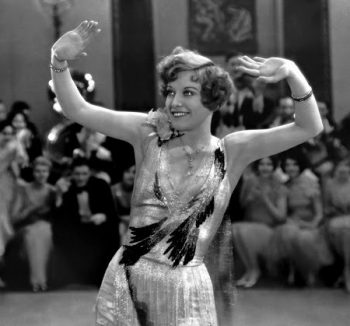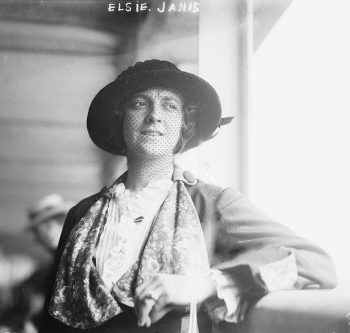 World War I’s “Sweetheart of the American Expeditionary Force” was a Marion girl named Elsie Janis. A singing, cartwheeling vaudeville star, she toured France entertaining and bolstering the morale of the servicemen. And, Janis was no flash in the pan. She had a lengthy and illustrious career as a multi-talented songwriter, actress, dancer, and singer. And, yet, 100 years later, this darling of war era has largely faded from public consciousness.
World War I’s “Sweetheart of the American Expeditionary Force” was a Marion girl named Elsie Janis. A singing, cartwheeling vaudeville star, she toured France entertaining and bolstering the morale of the servicemen. And, Janis was no flash in the pan. She had a lengthy and illustrious career as a multi-talented songwriter, actress, dancer, and singer. And, yet, 100 years later, this darling of war era has largely faded from public consciousness.
Born Elsie Bierbower in Marion, she started performing at age 2. Described as a “consummate state talent,” she had, by her early teens, performed at the White House for President William McKinley, achieved headliner status under the name “Little Elsie,” and debuted on Broadway in The Vanderbilt Cup. Shortly thereafter, she adopted the stage name Elsie Janis.
At 17, she went international, performing in The Passing Show, a musical revue in London, when the war broke out in August 1914. That fall, she started singing for British soldiers. Later she traveled with the American Expeditionary Force in France.
“Elsie Janis is as essential to the success of this Army as a charge of powder is essential in the success of a shell,” the Army newspaper Stars and Stripes declared. A Howitzer cannon was named in her honor.

For American soldiers, Janis was a reminder of women they knew back home. Performing as a “beloved kid sister,” she projected a mix of conventional and audacious femininity, adventurous, spunky and blunt.
In 1918, Janis toured France, performing on anything she could make into a stage–pickup trucks, shed roofs, airplane hangars. Morale-boosting entertainment for overseas soldiers grew as a phenomenon during World War I, with Janis as one of the biggest American stars.
Her down to earth style endeared her to the soldiers. “My performance consisted of telling stories filled with hells and damns, singing in a voice that was only mediocre, making the men sing with me, and finishing with cartwheels,” she wrote, describing her show.
Janis spent the summer of 1918 visiting military hospitals and singing for wounded soldiers. General John Pershing, the American commander in France named Janis an honorary general and gave her a Cadillac with an AEF Headquarters logo. A photo of Janis giving a military salute, her curls bouncing out from under the brim of a steel Brody helmet, became famous.

After the war, Janis enjoyed a career as a Hollywood screenwriter, actor, and composer. She was credited with the original story for Close Harmony (1929) and as composer and production manager for Paramount on Parade. She and director Edmund Goulding wrote the song “Love, Your Magic Spell Is Everywhere” for Gloria Swanson for her talkie debut film The Trespasser. Janis’s song “Oh, Give Me Time for Tenderness” was featured in the Bette Davis movie Dark Victory. For her contribution to the motion picture industry, Elsie Janis has a star on the Hollywood Walk of Fame.
In the 1930s, she worked as a screenwriter and was the first female announcer on the NBC radio network. During World War II, she performed with Bob Hope for 4,000 troops in California and on Dinah Shore’s radio show.
Janis had a lasting romance was with her generation of American soldiers. Four hundred of them marched in her funeral procession in 1956 to bid farewell to the “Sweetheart of the A.E.F.” She is buried near her Hollywood home in California.
#MarionMade #WeAreonBroadway


















